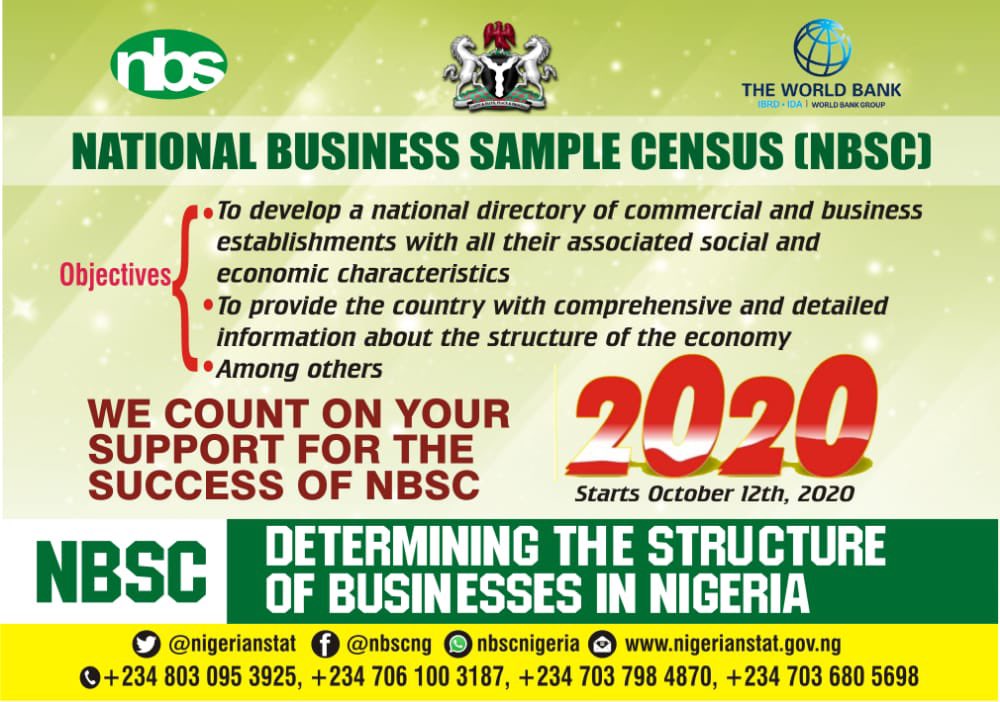Mr Yemi Kale, Statistician-General of the Federation, says the ongoing 2020 National Business Sample Census (NBSC) in Nigeria has been extended by two weeks.
Kale disclosed this while fielding questions from journalists on the sidelines of the annual meeting of the National Consultative Committee on Statistics (NCCS) on Monday in Akwanga, Nasarawa state.
The News Agency of Nigeria (NAN) reports that NBSC which started on Oct. 12, by the National Bureau of Statistics (NBS), was supposed to end on Dec. 12.
The NBSC’s aim is to compile, frame and develop instruments and concepts, establish standards and methodology for industrial and business surveys in Nigeria.
He said that the extension was necessary to fully capture businesses in states that the exercise was delayed in, due to the #ENDSARS protests in October.
“We had an initial slow period, it was supposed to start at about the time the #ENDSARS protest happened and it disrupted the progress, so we had a few states that were shut down or had curfews imposed.
”Because of that we are about a week or two delay, we should have finished yesterday but we have to extend it by a number of days in some states.
READ ALSO: N4.3m Fraud: EFCC Presents First Witness Against Accused
“In some other states, we have already finished the work and we have gotten a few millions of records of businesses already in our system.
“I believe it is an extremely successful exercise,” the Statistician-General said.
Kale said that for the first time in many years, Nigeria would have a clear idea of businesses operating across it.
He said that with that, policymakers could take very targeted decisions on how to help the businesses.
“That is the whole point of data, without that we are just guessing sector-wise.
“But when we know what businesses are operating, where they are, their sizes and how many people are employed, you can imagine the amount of information for policymakers to make the right decisions to boost businesses and further diversify the economy,” he added.
The NBSC is to serve as a benchmark for updates of subsequent commercial and industrial sector statistics and develop a national directory of commercial and industrial business establishments, with all their associated social and economic characteristics.
It is also aimed at providing the country with comprehensive and detailed information about the structure of the Nigerian economy.
The census covered all the 36 states of the federation and the Federal Capital Territory with establishments in all economic sectors involved in the exercise.

